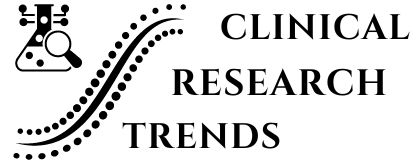The Role of Epigenetics in Clinical Research
Epigenetics is a rapidly evolving field that examines how gene expression is regulated by mechanisms other than changes in the DNA sequence itself. These mechanisms can turn genes on or off and influence how cells read genes, ultimately affecting an organism's phenotype without altering its genotype. The primary epigenetic mechanisms include DNA methylation, histone modification, non-coding RNA, and chromatin remodeling. These modifications can be influenced by various factors such as environment, lifestyle, and disease state, making epigenetics a crucial area of study in understanding complex biological processes.
Importance in Clinical Research
In clinical research, epigenetics holds significant promise for advancing our understanding of diseases, developing new diagnostic tools, and creating more effective therapies. Epigenetic changes are often reversible, providing opportunities for novel treatment approaches, such as epigenetic drugs that can modify the epigenome. Furthermore, epigenetic modifications can serve as biomarkers for disease diagnosis and prognosis, as well as predictors of treatment response. This makes epigenetics a cornerstone of personalized medicine, where therapies are tailored to the individual's unique genetic and epigenetic profile.
Overview of the Blog Content
This blog will explore the role of epigenetics in clinical research by delving into the various epigenetic modifications and mechanisms, their influence on disease development, and their impact on treatment response. We will discuss current research trends in the field, including advances in technologies and the integration of multi-omics approaches. Finally, we will consider the implications of these findings for personalized medicine and the future of clinical practice.
Epigenetic Modifications and Mechanisms
DNA Methylation
DNA methylation is one of the most well-studied epigenetic modifications. It involves the addition of a methyl group to the cytosine base in DNA, typically at CpG sites, which are regions where a cytosine nucleotide is followed by a guanine nucleotide. This modification can silence gene expression by preventing transcription factors from binding to the DNA or by recruiting proteins that compact the chromatin, making it less accessible for transcription. DNA methylation plays a crucial role in normal cellular processes such as development, X-chromosome inactivation, and genomic imprinting. Abnormal DNA methylation patterns, however, are associated with various diseases, including cancer, cardiovascular diseases, and neurological disorders.
Histone Modification
Histones are proteins around which DNA is wound, forming nucleosomes, the basic units of chromatin. The tails of histone proteins can undergo various chemical modifications, such as acetylation, methylation, phosphorylation, and ubiquitination. These modifications can influence chromatin structure and gene expression by altering the accessibility of DNA to the transcriptional machinery. For example, histone acetylation is generally associated with transcriptional activation, while histone methylation can either activate or repress transcription, depending on the specific amino acids involved and the context of the modification. Dysregulation of histone modifications is implicated in numerous diseases, highlighting their importance in maintaining normal cellular functions.
Non-Coding RNA
Non-coding RNAs (ncRNAs) are RNA molecules that do not encode proteins but play essential roles in regulating gene expression at various levels, including chromatin remodeling, transcription, and post-transcriptional processing. MicroRNAs (miRNAs) and long non-coding RNAs (lncRNAs) are two well-known classes of ncRNAs. miRNAs typically function by binding to complementary sequences on target messenger RNAs (mRNAs), leading to their degradation or translational repression. lncRNAs, on the other hand, can interact with chromatin-modifying complexes, influencing the epigenetic landscape of the genome. The dysregulation of ncRNAs is linked to many diseases, making them potential targets for therapeutic intervention.
Chromatin Remodeling
Chromatin remodeling refers to the dynamic changes in chromatin structure that occur through the repositioning or restructuring of nucleosomes. This process is mediated by chromatin remodeling complexes, which use the energy from ATP hydrolysis to alter the accessibility of DNA to transcription factors and other regulatory proteins. Chromatin remodeling is essential for various cellular processes, including DNA replication, repair, and transcription. Mutations or aberrant regulation of chromatin remodeling factors can lead to various diseases, including cancer and developmental disorders, underscoring the importance of these mechanisms in maintaining genomic stability and proper gene expression.
Influence on Disease Development
Cancer
In cancer, epigenetic alterations, such as DNA methylation and histone modifications, can lead to the activation of oncogenes or the silencing of tumor suppressor genes, thereby promoting tumorigenesis. For instance, hypermethylation of promoter regions in tumor suppressor genes can result in their silencing, providing a growth advantage to cancer cells. Conversely, hypomethylation can activate oncogenes and promote genomic instability. Histone modifications also play a significant role in cancer, with certain patterns associated with either active or repressed gene states. These epigenetic changes are not only markers of cancer progression but also potential therapeutic targets, as reversing these modifications could restore normal gene function.
Neurodegenerative Diseases
Epigenetic mechanisms are increasingly recognized as crucial players in the pathogenesis of neurodegenerative diseases such as Alzheimer's and Parkinson's. In Alzheimer's disease, for example, abnormal DNA methylation patterns and histone modifications have been observed in genes involved in amyloid-beta production and tau pathology. Similarly, in Parkinson's disease, epigenetic changes in genes associated with alpha-synuclein expression have been reported. These alterations can lead to the dysregulation of critical pathways involved in neuronal survival and function, contributing to disease progression. Understanding the epigenetic landscape in these diseases could pave the way for new therapeutic strategies aimed at modifying gene expression.
Cardiovascular Diseases
Epigenetic factors are also implicated in the development of cardiovascular diseases. For example, DNA methylation changes in genes involved in inflammation, lipid metabolism, and vascular function have been associated with atherosclerosis and hypertension. Histone modifications and ncRNAs, particularly miRNAs, also play roles in regulating genes involved in endothelial function and cardiac remodeling. These epigenetic changes can be influenced by environmental factors such as diet, smoking, and stress, highlighting the potential for lifestyle interventions to modify disease risk. Moreover, epigenetic biomarkers could serve as valuable tools for early diagnosis and risk assessment in cardiovascular diseases.
Autoimmune Disorders
Autoimmune diseases, characterized by the immune system attacking the body's own tissues, have also been linked to epigenetic dysregulation. In diseases such as systemic lupus erythematosus (SLE) and rheumatoid arthritis (RA), aberrant DNA methylation and histone modification patterns have been observed in immune-related genes. These epigenetic changes can alter the expression of cytokines, transcription factors, and other molecules involved in immune regulation, contributing to disease onset and progression. Understanding the epigenetic mechanisms underlying autoimmune diseases could lead to novel therapeutic approaches that aim to restore normal immune function.
Epigenetics in Treatment Response
Personalized Medicine and Epigenetics
Personalized medicine aims to tailor treatment to the individual characteristics of each patient, including their genetic and epigenetic profiles. Epigenetics plays a crucial role in this approach, as epigenetic modifications can influence how patients respond to specific therapies. For instance, the epigenetic status of certain genes can affect drug metabolism, efficacy, and toxicity. By analyzing a patient's epigenetic profile, clinicians can predict which therapies are likely to be most effective and avoid those that may cause adverse reactions. This personalized approach has the potential to improve treatment outcomes and reduce the incidence of side effects.
Epigenetic Biomarkers in Predicting Treatment Efficacy
Epigenetic biomarkers, such as DNA methylation patterns, histone modifications, and ncRNA expression, are valuable tools in predicting treatment response. In cancer, for example, the methylation status of certain genes can serve as a biomarker for sensitivity to specific chemotherapies or targeted therapies. Similarly, in autoimmune diseases, epigenetic markers can predict response to immunosuppressive drugs. The identification of such biomarkers allows for the stratification of patients into groups that are likely to respond to specific treatments, facilitating the development of more effective and personalized therapeutic strategies.
Case Studies in Cancer and Epigenetic Therapies
Several case studies highlight the potential of epigenetic therapies in cancer treatment. For instance, the use of DNA methyltransferase inhibitors (DNMTis) such as azacitidine and decitabine has shown promise in treating hematological malignancies like myelodysplastic syndrome (MDS) and acute myeloid leukemia (AML). These drugs work by reactivating silenced tumor suppressor genes, leading to reduced tumor growth. Histone deacetylase inhibitors (HDACis) are another class of epigenetic drugs that have been used in treating various cancers, including cutaneous T-cell lymphoma. These therapies illustrate how targeting epigenetic modifications can effectively treat certain cancers, particularly when combined with other therapeutic modalities.
Challenges in Translating Epigenetic Research to Clinical Practice
Despite the promise of epigenetic therapies, several challenges remain in translating epigenetic research into clinical practice. One major challenge is the complexity and dynamic nature of the epigenome, which can vary significantly between individuals and even within different tissues of the same individual. This variability makes it difficult to identify universal biomarkers or therapeutic targets. Additionally, the off-target effects of epigenetic drugs and the potential for reactivation of unwanted genes pose significant risks. Furthermore, there is a need for more comprehensive and longitudinal studies to fully understand the long-term effects and safety of these therapies. Overcoming these challenges will require continued research and collaboration between basic scientists and clinicians.
Current Research Trends in Epigenetics
Advances in Epigenetic Technologies
Recent advances in epigenetic technologies have significantly expanded our ability to study the epigenome. Techniques such as next-generation sequencing (NGS) and CRISPR-based gene editing have revolutionized the field, allowing for high-resolution mapping of epigenetic modifications across the genome. NGS technologies, including whole-genome bisulfite sequencing (WGBS) and chromatin immunoprecipitation sequencing (ChIP-seq), enable comprehensive analysis of DNA methylation and histone modifications, respectively. CRISPR-based tools, such as CRISPR-dCas9, allow for precise manipulation of epigenetic marks, providing insights into the functional consequences of these modifications. These technological advances are driving new discoveries and applications in epigenetics.
Epigenome-Wide Association Studies (EWAS)
Epigenome-wide association studies (EWAS) are a powerful approach for identifying epigenetic changes associated with diseases. Similar to genome-wide association studies (GWAS), EWAS analyze the association between epigenetic modifications and disease traits across the genome. These studies have identified numerous disease-associated epigenetic markers, providing insights into disease mechanisms and potential therapeutic targets. For example, EWAS have revealed differential DNA methylation patterns associated with cancer, metabolic disorders, and autoimmune diseases. However, the interpretation of EWAS findings requires careful consideration of confounding factors such as age, sex, and environmental exposures, which can influence epigenetic modifications.
Integration of Multi-Omics in Epigenetic Research
The integration of multi-omics approaches, including genomics, transcriptomics, proteomics, and metabolomics, is an emerging trend in epigenetic research. By combining data from different molecular layers, researchers can gain a more comprehensive understanding of the complex interactions between genetics, epigenetics, and environmental factors. For instance, integrating epigenetic data with transcriptomic and proteomic data can reveal how epigenetic modifications influence gene expression and protein function. This multi-omics approach is particularly valuable in personalized medicine, as it allows for a more accurate characterization of individual disease mechanisms and identification of personalized therapeutic targets.
Epigenetic Drugs and Therapeutic Approaches
The development of epigenetic drugs, or "epidrugs," is a growing area of interest in the field of therapeutic research. These drugs target specific epigenetic modifications to alter gene expression and treat diseases. In addition to DNMTis and HDACis, other classes of epidrugs include histone methyltransferase inhibitors (HMTis), histone demethylase inhibitors (HDMis), and bromodomain inhibitors (BETis). These drugs are being investigated in preclinical and clinical studies for various indications, including cancer, neurological disorders, and inflammatory diseases. The success of these therapies depends on a deep understanding of the underlying epigenetic mechanisms and careful patient selection based on biomarker analysis.
Implications for Personalized Medicine
Personalized Treatment Plans Based on Epigenetic Profiles
Personalized medicine aims to provide tailored treatments based on an individual's unique genetic and epigenetic profile. In the context of epigenetics, this involves analyzing epigenetic markers to predict disease risk, prognosis, and treatment response. For example, in cancer, profiling the DNA methylation status of certain genes can guide the selection of targeted therapies or immunotherapies. Similarly, in cardiovascular diseases, epigenetic markers can inform the choice of antihypertensive or lipid-lowering therapies. Personalized treatment plans based on epigenetic profiles have the potential to improve treatment efficacy, reduce adverse effects, and optimize patient outcomes.
Preventive Strategies and Lifestyle Interventions
Epigenetic research also has important implications for preventive medicine and lifestyle interventions. Since epigenetic modifications can be influenced by environmental factors such as diet, exercise, and stress, lifestyle changes can potentially modify disease risk. For example, dietary interventions that alter DNA methylation patterns have been shown to reduce the risk of certain cancers and cardiovascular diseases. Similarly, physical activity has been associated with favorable epigenetic changes in genes involved in inflammation and metabolism. Understanding the impact of lifestyle factors on the epigenome can inform public health strategies aimed at preventing disease and promoting healthy aging.
Ethical and Privacy Considerations in Epigenetic Data Use
The use of epigenetic data in personalized medicine raises important ethical and privacy considerations. Epigenetic information is sensitive and can reveal insights into an individual's health, ancestry, and even lifestyle choices. Therefore, it is crucial to protect the privacy of individuals and ensure that epigenetic data is used responsibly. Ethical considerations also arise in the context of epigenetic therapies, particularly concerning informed consent and the potential for off-target effects. Addressing these issues requires clear guidelines and regulations to safeguard the rights and well-being of individuals while advancing the field of epigenetics.
Notable Labs: The Role of Epigenetics in Clinical Research
Epigenetics is an emerging and transformative field that explores how gene expression is regulated beyond DNA sequence changes. This area of study delves into mechanisms like DNA methylation, histone modification, non-coding RNA, and chromatin remodeling, all of which can influence how genes are expressed without altering the underlying genetic code. These epigenetic modifications can be affected by environmental factors, lifestyle choices, and disease conditions, making them critical in understanding complex biological processes.
In clinical research, epigenetics offers significant potential for advancing our understanding of various diseases, from cancer to neurodegenerative disorders. By studying these changes, researchers can develop new diagnostic tools, more effective therapies, and personalized treatment plans tailored to an individual's unique genetic and epigenetic profile. This personalized approach is at the forefront of modern medicine, promising to enhance treatment efficacy and patient outcomes.
This blog explores the vital role of epigenetics in clinical research, detailing the mechanisms involved, their impact on disease development, and the potential for innovative treatments. It also covers current research trends and the implications for personalized medicine, highlighting the future possibilities in this exciting field. As we continue to uncover the complexities of the epigenome, the potential for breakthroughs in medical science grows, promising new avenues for disease prevention and treatment.
Conclusion
Summary of Key Points
Epigenetics is a critical field of study in clinical research, offering valuable insights into the regulation of gene expression and the development of diseases. Key epigenetic mechanisms, including DNA methylation, histone modifications, ncRNAs, and chromatin remodeling, play essential roles in normal and pathological processes. Epigenetic modifications can influence disease development and treatment response, making them important targets for therapeutic interventions and biomarkers for personalized medicine.
Future Directions in Epigenetic Research
Future research in epigenetics will likely focus on advancing our understanding of the dynamic nature of the epigenome and its interactions with genetic and environmental factors. The development of new technologies and multi-omics approaches will continue to drive discoveries and applications in the field. Additionally, there is a growing interest in exploring the role of epigenetics in aging and longevity, as well as in complex diseases such as obesity and diabetes.
The Potential of Epigenetics to Revolutionize Clinical Practice
The potential of epigenetics to revolutionize clinical practice lies in its ability to provide a deeper understanding of disease mechanisms and facilitate the development of personalized therapeutic strategies. As research in this field progresses, it is likely to lead to new diagnostic tools, therapeutic approaches, and preventive strategies. By integrating epigenetic information into clinical decision-making, healthcare providers can offer more precise and effective treatments, ultimately improving patient outcomes and advancing the field of personalized medicine.
In conclusion, the study of epigenetics is transforming our understanding of human health and disease, offering exciting opportunities for improving clinical practice. As we continue to unravel the complexities of the epigenome, we move closer to realizing the full potential of personalized medicine and developing innovative treatments that address the unique needs of each patient.










Join Our New Letter










